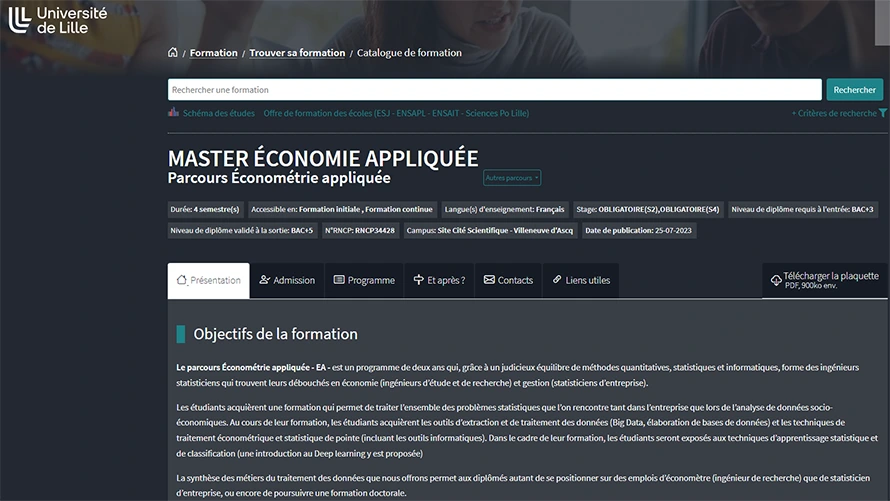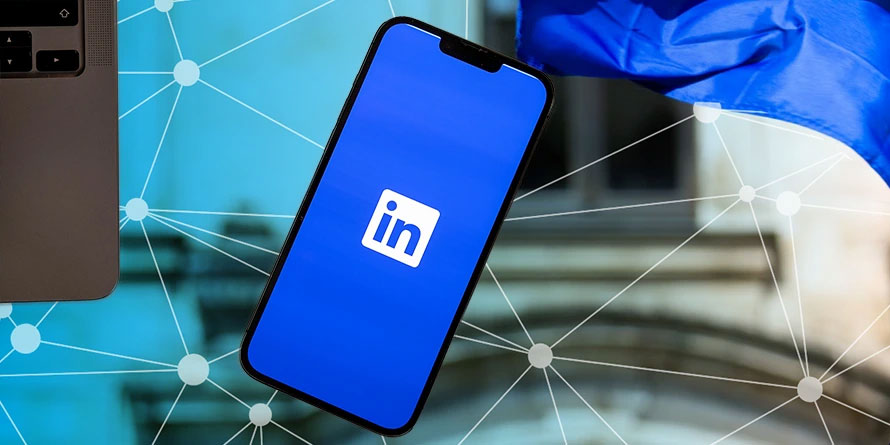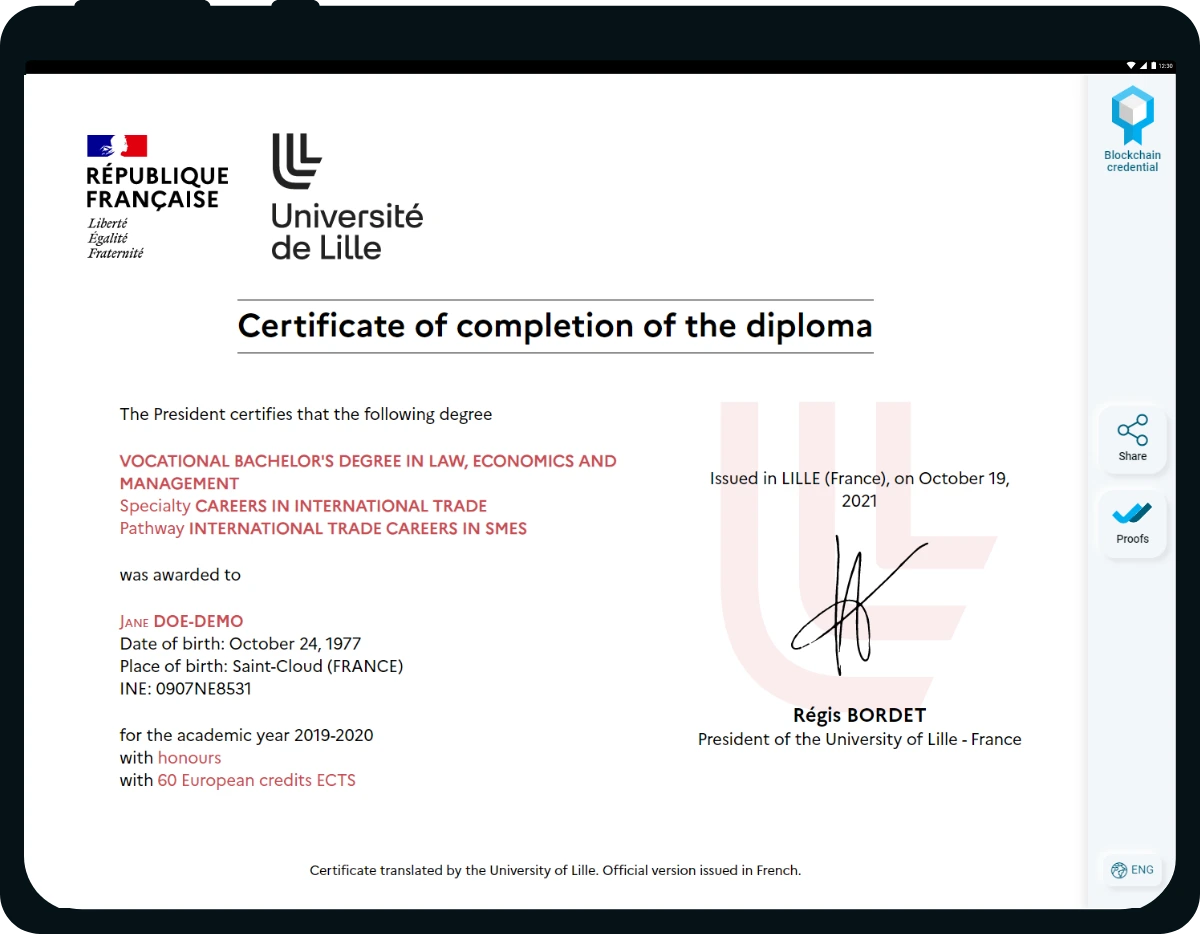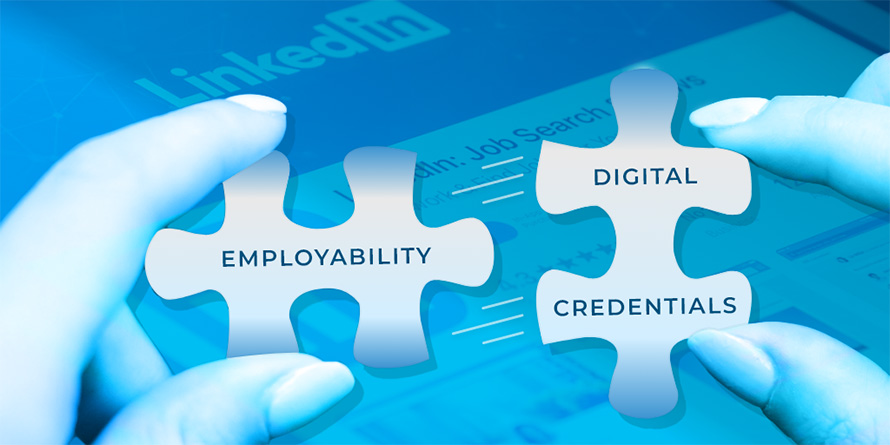85% of holders of a Master’s degree in Law, Economics or Management from the University of Lille have a stable job after graduation. This is precisely the experience of Moustapha Abdoulmajid, a former student of Applied Economics, who is one of the 91% of graduates to have entered the labor market following the completion of their studies. Today, Head of Communications and Public Relations at the port road corridor management company Djibouti Ports Corridor Road SA (DPCR SA), he was able to benefit from the digitalization of skills certificates set up by the University of Lille in partnership with BCdiploma.
In an interview with the BCdiploma team, Abdoulmajid talks about his experience with digital credentials, and takes stock of the positive impact that this digital solution has had on his career.
Who is Moustapha Abdoulmajid and what is his background?

A former student of the University of Lille …
Moustapha Abdoulmajid studied Economics at the University of Lille between 2015 and 2021, and, at the end of his course, the academic board awarded him his 2-year Master’s Degree in Applied Economics with honors.
Today, he is Head of Communications and Public Relations at DPCR SA
After finishing his studies, Abdoulmajid set off for Djibouti, where he became Head of Communications and Public Relations at the port road corridor management company Djibouti Ports Corridor Road SA (DPCR SA). In addition, he is now a part-time professor at the Higher Institute of Accounting and Business Administration (ISCAE), and also teaches economics courses to BTS vocational training and professional diploma students.
A great first impression of digital credentials
A revolution acclaimed by both recruiters and students
The first time Abdoulmajid heard about digital credentials was when he received an email from his university presenting the partnership with BCdiploma. Immediately convinced of the effectiveness of this digital solution, the freshly graduated student submitted his digital credentials to recruiters, who were initially surprised by this new technology, but then saw them as a “real revolution”.
An innovation that changes the lives of international students
For Abdoulmajid, digital credentials are of particular interest for international students. To work in Djibouti, he had to present his certifications in both English and French, which can be problematic when dealing with paper only diplomas, but extremely simple when it comes to digital credentials. Indeed, there is no need to get a sworn translation of the diploma, or ask the university to produce one at significant cost, a digital diploma can be easily converted and shared by email, in an online CV, or even across social media in just a few clicks!
Our questions to a satisfied student

How do digital credentials add value to your degree?
“Thanks to digital credentials, my diploma is more secure and its value is preserved!” replied the student. There is no need to share a PDF, which can be tampered with, or a paper diploma, which could get lost or damaged. Digital credentials can be sent to students by email, and contain all the right information to guarantee their employability. “Physical diplomas and digital credentials may have the same goal, but certified digital credentials explain things in more detail,” continued Abdoulmajid.
Did posting your degree on LinkedIn change anything?
Once he obtained his degree, the former student of the University of Lille particularly appreciated being able to share it on his LinkedIn profile in just a few clicks, and even being able to tag his university and BCdiploma in his post. “There’s no longer any need to spend hours scanning in diplomas!” he rejoiced.
Thanks to the sharing of his digital credential, Abdoulmajid received various job offers from major international banks and government agencies! Being easily shareable on social and professional networks makes digital credentials a boon for the employability of graduate students.
What future do you see for digital credentials?
“In the future, we will no longer have any need for paper diplomas,” said the young man. “Even for old certificates, we will be able to register transcripts and reissue diplomas on a blockchain thanks to the digital credentials system.” For Abdoulmajid, this technology is the future for international universities, and should carefully be studied by governments who are struggling to fight the phenomenon of forged official documents.
In this sense, according to Abdoulmajid, BCdiploma can have a real impact in securing diplomas and in helping universities and state bodies to guarantee the validity of credentials, particularly in developing countries.
BCdiploma at the service of the employability of graduate students

“We are experiencing something extremely new in the certification of diplomas,” concluded Abdoulmajid. By offering higher education institutions, such as the University of Lille, a turnkey solution to secure their diplomas and promote the development of skills, BCdiploma is committed to improving the employability of young graduates.
To allow everyone to benefit from this technology, the advantages of which he has been able to appreciate first-hand, the former student would also like to promote the implementation of digital credentials in the graduation system of Djiboutian universities, a mission BCdiploma will be able to help with. It is with this idea that our interview with Abdoulmajid ends, who leaves us with a parting cry of “Long live blockchain!” launched with a smile.
To read other testimonies and learn more about our digital credentials, visit the BCdiploma website customer success section!
